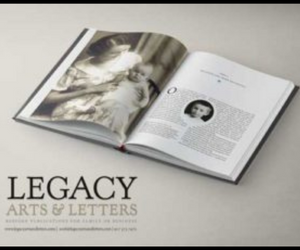HPV Risk and Cervical Cancer
MANY WOMEN ARE MISSING THE BENEFITS OF SCREENING AND VACCINATION FOR CERVICAL CANCER
In spite of the fact that cervical cancer screening is one of the greatest achievements in cancer prevention, too many women still die from the disease. Eight million women between the ages of 21 and 55 were not screened between 2007 and 2012. This amounts to 11.4% of the population. In the case of women with no health insurance, the figure rises to 23%, and for those with no regular health care provider, it is 25%. The proportion of inadequately screened women is higher among older women, Asians, Pacific Islanders, American Indians, and Alaska Natives.
Further, only one in three girls age 11-12 are getting the human papillomavirus (HPV) vaccination; and only one in seven boys in that age group have received the vaccination. HPV vaccination and cervical cancer screening combined could prevent nearly 93% of new cervical cancer cases.
BE CAREFUL TO SCREEN AT THE APPROPRIATE AGES AND TIMES, SO AS NOT TO OVERSCREEN
While many women do not receive the screening they need, there are also women who are overscreened. In 2012, for the first time three major organizations involved with cancer prevention (the American Cancer Society, U.S Preventive Services Task Force [USPSTF], and the American Gynecological and Obstetrical Society) have come together on recommendations for screening.
They recommend a Pap smear every three years for women ages 21-65 years. Or, in the case of women ages 30- 65 years who want to lengthen the screening interval, they recommend screening with a combination of a Pap smear and HPV testing, and this combination can be done every 5 years. The USPSTF gives these approaches an A rating. That is, “There is high certainty that the net benefit is substantial.”
In contrast, according to the USPTSF, screening more frequently or screening with younger or older women in the absence of other risk factors carries a “moderate or high certainty that the service has no net benefit or that the harms outweigh the benefits.” In spite of this knowledge, some women are screened more frequently than is desirable, and some are screened when they are outside the range of the ages at which they’ll benefit from the tests.
VACCINATION PLAYS A MAJOR ROLE IN DECREASING THE BURDEN OF CERVICAL CANCER
Persistent HPV infection is responsible for the majority of cervical cancers. Like the common cold, HPV can spread easily. However, unlike colds, HPV is spread through sexual contact. It is important to note that it does not require penetration to spread, given that one can get HPV through skin-to-skin contact. The good news is that most women who get the virus will clear it within two years. The bad news is that they may become re-infected many times. Additionally, if they have a weakened immune system, they may be unable to clear it.
Under the wrong circumstances, the virus may cause abnormal cell changes or lesions that if untreated can progress to cancer. There are several stages during which this chain of events can be interrupted: vaccination prevents HPV infection from occurring; screening allows detection of the virus and/or cell changes; and follow-up of abnormal results can also prevent the disease from progressing.
MAKE SURE TO STAY ON TOP OF ABNORMAL HPV AND PAP RESULTS
Once a woman has an abnormal diagnosis, education on appropriate follow-up and treatment is essential. This is especially true for African-American women. While Hispanic women have the highest rate of new cases, African-American women are the most likely to die. The problem is follow-up, and the cause of this can be an access, cultural, or insurance issue. No woman should die of this preventable disease, so take special care that each of your patients gets the necessary follow-up.
Search Articles
Latest Articles
Ukraine’s Rare Metals Offer Rare Opportunities
https://www.wealthmanagement.com/alternative-investments/ukraines-rare-metals-offer-rare-opportunities Publication –wealthmanagement.com
Putin Resorts to Financial Smoke and Mirrors
https://cepa.org/article/putin-resorts-to-financial-smoke-and-mirrors/ Publication –cepa.org
Putin’s Weak Hand
https://cepa.org/article/putins-weak-hand/ Publication –cepa.org
The Game That Heals: How “The Remembrance Game” Provides Therapeutic Relief
https://foreignpress.org/journalism-resources/the-game-that-heals-how-the-remembrance-game-provides-therapeutic-relief Publication –foreignpress.org
Subscribe to Updates
About Author

Mitzi Perdue is the widow of the poultry magnate, Frank Perdue. She’s the author of How To Make Your Family Business Last and 52 Tips to Combat Human Trafficking. Contact her at www.MitziPerdue.com
All Articles
A Contrarian Investment that Could Be Just Right for You
A Contrarian Investment that Could Be Just Right for YouSuppose for a moment that you’re an investor. Not just any investor. In this case you are Peter Hughes. You are a real person, although in fact Hughes is not your real name. Here’s what’s going on with you,...
Knowledge Services: Crucial in Today’s Knowledge Economy
Knowledge Services: Crucial in Today's Knowledge EconomyIf you’re beautifully organized, you can quickly find all your documents when you need them. However, if you’re like most people, the frustration and lost time spent trying to locate a needed document can be...
A Family Book Can Be a Priceless Investment
A Family Book Can Be a Priceless InvestmentImagine something terrible for a moment. If you lost your memory, as in Alzheimer’s, you would have lost one of the most basic factors that makes you you. Without memory, you’d have trouble making good decisions; you’d no...
The Soft Issues Are Really the Hard Issues!
The Soft Issues Are Really the Hard Issues!If you’re part of a business family and you’re also a parent of a school age child, which would be easier for you to do? Be honest! Choice A: Have the Sex Talk with your child Choice B: Have the Money Talk with your child...
Trust: How to Nurture a Key Factor in Family Success
Trust: How to Nurture a Key Factor in Family SuccessTRUST: HOW TO NURTURE A KEY INGREDIENT FOR FAMILY SUCCESS What does it take to be a successful multi-generational family business? Dennis Jaffe, PhD is one of the best people to ask. For more than 40 years, he’s...
Women’s Leadership Styles: There’s a Lot to Learn!
Women's Leadership Styles: There's a Lot to Learn!Women in family businesses face a particular set of distinct challenges when it comes to leadership style. Heather Powell, a family business coach for women and couples, has an impressive track record of dealing with a...






